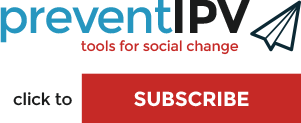Justice, Equity, Diversity, and Inclusion Organizational Action Toolkit

This toolkit serves as a first step for any organization ready to implement justice, equity, diversity, and inclusion (JEDI) practices. It is designed specifically for small, community-based nonprofit organizations with a volunteer board of directors and fewer than three full-time staff. It operates from the following Theory of Change:
IF a small nonprofit governance board implements the JEDI toolkit that operationalizes racial equity and inclusivity within its organizational structure THEN the organization will be better equipped to promote racial equity and justice within the communities they serve.
Using this toolkit, board and staff members can assess their current practices and find resources to ensure their continued growth in diversity and equity. Lastly, JEDI work is an iterative journey, which a committed organization must regularly and frequently revisit. This toolkit facilitates evaluating the current state, measuring progress and revisiting justice, equity, diversity and inclusion work regularly.
The goal of this interactive toolkit is to stimulate and guide smaller nonprofit organizations as they integrate JEDI best practices into their governance and organizational structure. The toolkit will:
- Guide board and staff members in exploring their current racial diversity, equity, and inclusion practices;
- Assess JEDI imbalance in five key organizational areas of focus; and
- Connect board and staff members to resources and tools on how to make improvements within those five organizational areas.
This toolkit includes five assessments that focus on governance, mission-driven programs, partnerships, communication and advocacy. Each assessment allows you to reflect on your organizational practices and identify areas for improvements. A list of tools and resources for you to utilize when making such amendments follows each assessment.
The APHA notes: “Before beginning your assessment, we invite you to reflect on what you hope to achieve through engaging with this toolkit and keep that in mind as you go through it.” Assessment results from this toolkit should be used to construct short- and long-term action plans for moving the work forward.
This toolkit is available from the American Public Health Association’s website. See also their Racism and Health resource list for further learning.

